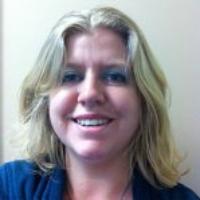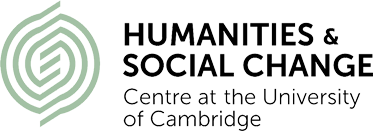Dr Emma Doyle

Dr Emma Hudson-Doyle is based at the Joint Centre for Disaster Research at Massey University/GNS Science, Wellington, New Zealand. Her interests lie at the interface between physical science and critical decision makers, with a primary focus on the communication of science advice during natural hazard events. Current research focuses on the communication of forecast and model uncertainty. Other research areas and supervision topics include community resilience, social media in disasters, citizen science, aftershock forecasts, early warnings, motivations to prepare, communicating probabilities, low likelihood risk, and visual uncertainty, and exploring the use of science advice through table top emergency management exercises.
We contacted Emma before our ‘Disaster Response | Knowledge Domains and Information Flows‘ workshop for her viewpoints on the questions that were being addressed throughout the day and to act as a foundation for conversation in the focus group discussions. We would like to take this opportunity to thank Emma for giving up her time to provide us with her answers, which can be seen below.
What type of knowledge is and should be used?
This depends upon the problems and issues you are trying to address. Adopting a problem/solution focus – rather than a ‘knowledge’ focus, and thinking about the needs and concerns of the communities, organisations, and others affected by a disaster will lead you to understand which knowledge is needed. We must move from a ‘deficit’ model of communication and knowledge sharing where we assume we know what others need, towards a two-way partnership model. Accordingly, scientific knowledge may then work in partnership with (for example) indigenous knowledge, complementing each other to address the issue at hand.
What constitutes as an expert?
Similar to above, there are many different experts. We need to move away from a generic label of “the expert” to more specific labels “the landslide expert”, “the psychology expert” etc. This respects more equally the different disciplines and epistemologies at the table, as it recognises each has expertise. Thus, with this in mind, I envision an expert as someone with extensive experience and training in a field or topic, able to make informed judgments by drawing on the evidence available. This training may not be formal/university, and thus an expert can include local community experts, etc.
How is and should uncertainty be factored into decisions and communicated?
There are a range of different academic views debated on this: On the one hand: people advocate for not communicating the uncertainty at all, as it can cause people to mistrust or deny the message, view the communicator as incompetent, allow people to interpret the information to one end member state of uncertainty, or even cause harm if the decision maker does not take a safety action because of uncertainty. On the other hand: people advocate for communicating all uncertainties as it is ethically and morally the correct action, the communicator is more honest and trustworthy, it enables decision makers to plan alternative courses of action, and is the true state of the knowledge. I think there is a happy medium somewhere in the middle: if we were to communicate all the uncertainties it would be overwhelming during short time, high pressure, decision-making situations. However, it is important to communicate them to enable decision makers to make the best decisions with alternative actions. In order to assess what to communicate, we must thus first identify the decision-makers’ needs – through relationship building activities so we can understand which uncertainties are relevant to them and their decisions, and which are not. Ideally this should be identified in pre-event planning, so that during an event, scientists and others provide a ‘targeted’ supply of information to meet the decision-makers’ needs, communicating only the decision-relevant uncertainties – communicating all uncertainties could overwhelm a decision-maker with information (causing cognitive overload). Please see the attached for more discussion of this…
What happens to, and should happen to, knowledge after it is produced and the event has taken place?
This is a tricky one: it depends whose knowledge it is. If it is publicly funded, then it should be publicly available to aid other communities, and future resilience building. If it is privately funded, one would hope it could be publicly available, but there may be company rights that mean it can not be. If it is indigenous knowledge, then (depending on the customs of the indigenous people of the region), it is for the indigenous owners of that knowledge to decide.
Thank you again to Emma for these responses.
Responses received on the 6th February 2020.
